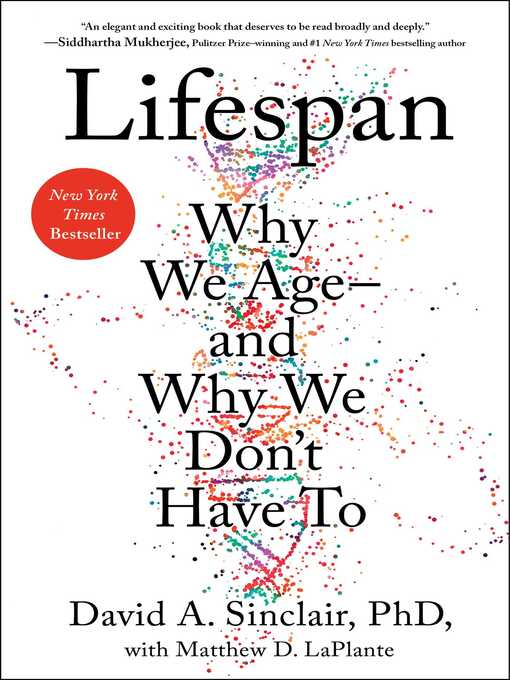
Lifespan
Why We Age—and Why We Don't Have To
کتاب های مرتبط
- اطلاعات
- نقد و بررسی
- دیدگاه کاربران
نقد و بررسی

July 15, 2019
An uplifting review of the science suggesting that "prolonged healthy lifespans are in sight." According to Sinclair (Genetics/Harvard Medical School), scientists have discovered what causes aging. They've also discovered how to treat it because, despite what doctors and philosophers have claimed throughout history, aging is not inevitable. It's a disease. Throughout the book, the author's enthusiasm jumps off the page. Scientifically inclined readers may be occasionally turned off by his affection for dramatic stories of individuals who defy aging, but they cannot deny that he is an acclaimed, award-winning scientist who works hard to explain his groundbreaking research and that of laboratories around the world. Beginning at the beginning, he writes that "way back in the primordium, the ancestors of every living thing on this planet today evolved to sense DNA damage, slow cellular growth, and divert energy to DNA repair until it was fixed--what I call the survival circuit." In the 1950s, scientists discovered that DNA damage occurs throughout life. Since it's disastrous for a cell to divide with broken DNA, repair mechanisms suppress growth and reproduction until they're finished. Cells that don't divide live longer. Insects and mice mature quickly, reproduce, and soon die. Elephants and whales grow slowly and live much longer lives. Cells of the bristlecone pine, the oldest of which is nearly 5,000 years old, show no signs of aging. Researchers have discovered the mechanism of growth suppression in hormones and also in genes that produce such specific enzymes. These longevity enhancers respond to stress but also to exercise, intermittent fasting, low-protein and low-calorie diets, and several pharmaceuticals that, the author assures readers, will soon emerge from the laboratory. Also in the works are DNA monitoring and reprogramming, already well advanced in animals, that can detect malfunctions and reset the aging clock. A highly optimistic review of anti-aging science that may persuade older readers that they were born too soon.
COPYRIGHT(2019) Kirkus Reviews, ALL RIGHTS RESERVED.

























دیدگاه کاربران